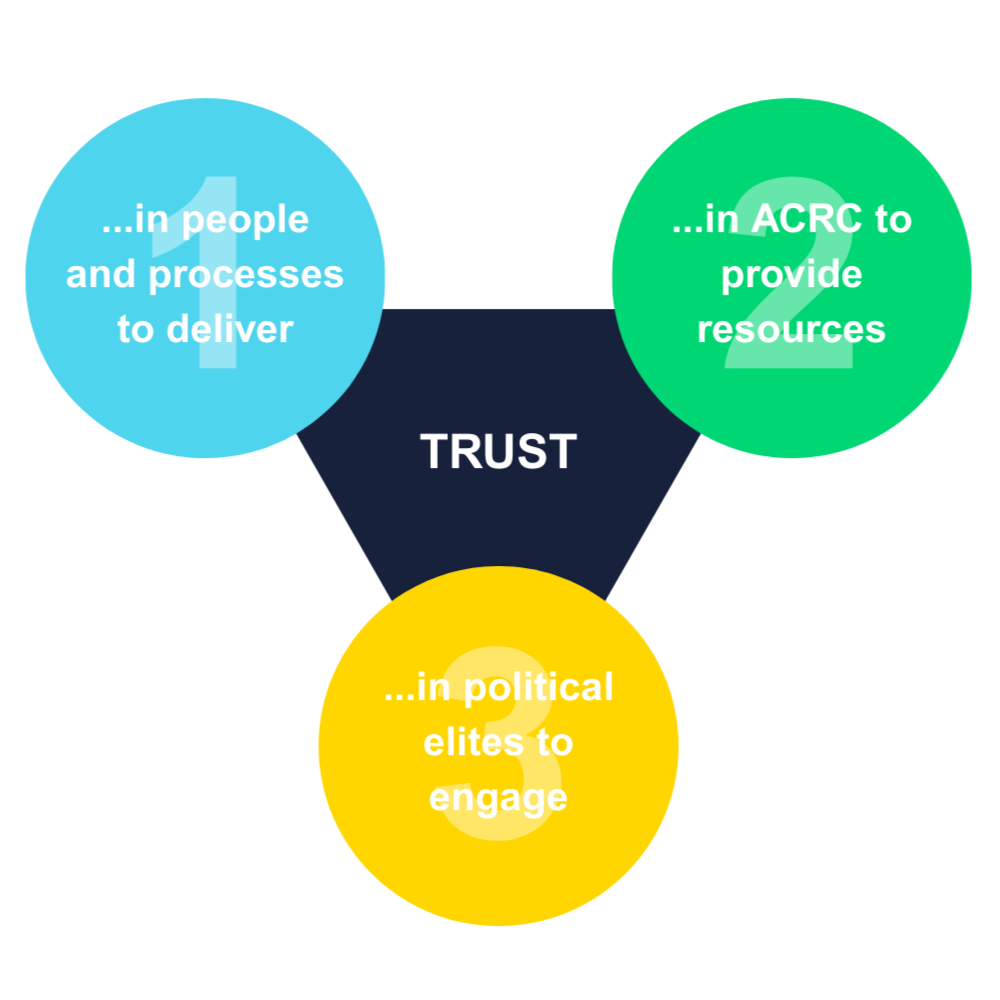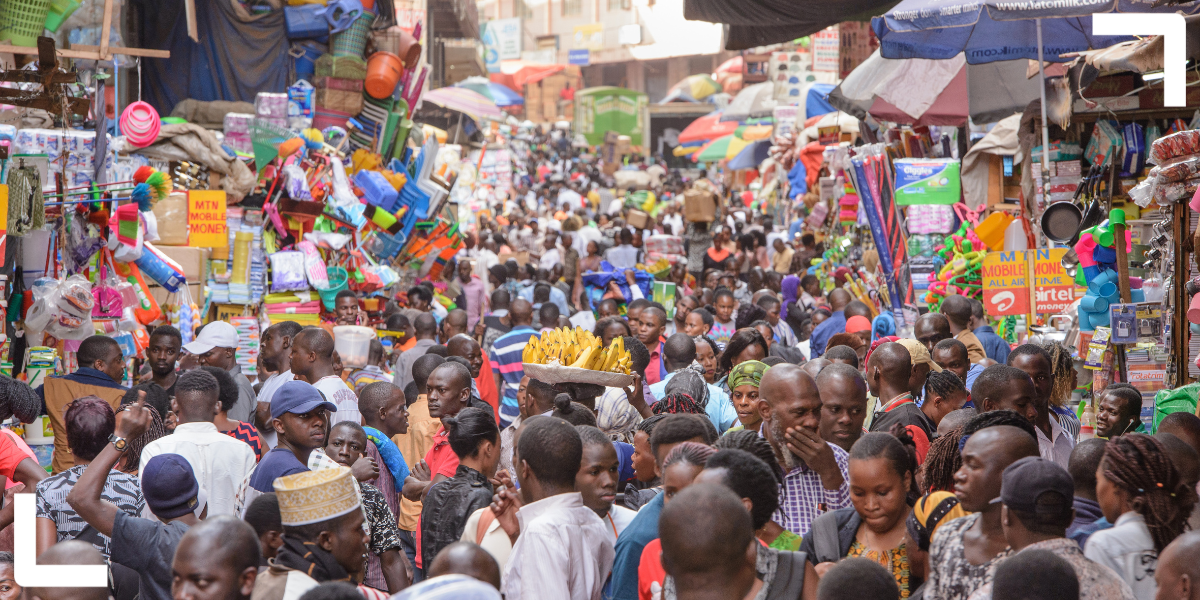Urban transformations: Aid, trust and ACRC
This is the second in a series of blog posts focusing on how urban reform happens and where ACRC fits into change processes. The first blog post focuses on how ACRC’s approach links to issue-based programming, this second one explores urban transformation and the centrality of trust in politically engaged development programmes, the third takes a closer look at how ACRC adds value to urban reform, the fourth highlights how ACRC is helping build community capabilities to address urban challenges, and the fifth outlines what donors can learn from ACRC’s approach to development.
By Diana Mitlin
What does it take for ACRC – a research and action research programme funded and partly designed by FCDO – to support urban transformation?
My previous blog post described the way in which ACRC has nurtured twin tracks to deliver both on the formal process of the FCDO programme and on advancing its collaboration with embedded reform efforts in cities.
In practice, advancing the collaboration, as ACRC moves into its implementation phase, requires simultaneous action on three fronts. It is not possible to wait until one thing is complete. This is because politics is always in play and as outcomes emerge and political interests pick up, we need to ensure that political engagement is framed in a way that is most likely to lead to success and draws in key players. Development is inherently non-linear, and the complexities of urban development mean that trajectories are uneven and uncertain.
Responding to changes requires simultaneously developing activities and building relational capital. This takes place both within the team and beyond to multiple potential stakeholders – most notably key state agencies whose policies, programmes and practices the project seeks to influence. We necessarily have to work with diverse groups within the state and key elites beyond the state because of uncertainties around the trajectory of change.
What is the trust triad?

Trust is central to our ability to operate effectively and is particularly relevant across three key dimensions:
1. Trust in the people and processes to deliver
The teams leading ACRC’s action research projects are tasked to complete activities, deliver outputs and secure outcomes. When this process is being planned, the outcomes are inevitably aspirational. Activities in one quarter build on those in previous quarters, and necessarily interact to secure the change required. There has to be trust from those planning city and programme learning, and those coordinating uptake, in the ability of action research teams to deliver success.
The plans for city and programme learning need to be based on the assumption that some of the promised outcomes will be delivered. Outcomes emerge over time (as the ACRC framework for learning about elite commitment and state capability demonstrate). And plans to bring together that learning cannot wait until the learning arrives. Uptake relationships and plans need to be in place (with some potential for flexibility) and ready to present outcomes and lessons (some of which are likely to be unanticipated). But at the same time, they need to be sufficiently structured to enable the lessons from one project to come together with those of a second and third.
2. Trust to deliver resources (financial, knowledge, external relations)
City-based teams need to know that they will receive the funding for the activities that they have contracted to undertake. They need to know that the funding agency will be empathetic to the challenges that come up, such as those related to local powerbrokers delaying collaboration, personal crises in the lives of key team members, and new difficulties from exogenous shocks. They also need to be confident that ACRC’s senior management and operations teams will be enthusiastic about new opportunities, such as interest from other local authorities, buy-in by key leaders, and overtures from potential collaborators.
None of this means that the ACRC management team has to agree immediately. Rather, it means that queries will be in the spirit of the collaboration, helping the city team to manage challenges and opportunities with support, asking questions that deepen an interrogation of possibilities, and building the confidence and capability of local experts. This can be challenging when local action research and city teams need to offer credible “deals” to keep key powerbrokers on track, while navigating new potentialities as they emerge.
Closely related to the trust to deliver resources is a sense of trust in the values and intention behind the funding commitments. One crucial way that we have been able to build the trust of African colleagues has been the establishment of Community Saver groups in the city of Manchester, utilising the organising approaches developed in the global South by Slum Dwellers International (SDI).
Too often in development, it is assumed that learning and capability development go North to South, and that the exceptions to this are based on personal attributes and commitment, rather than collective processes. Actively reversing this assumed approach through the establishment of these SDI-modelled saving schemes in Manchester is a clear message that “we believe in what you are trying to do, we recognise the quality of your intent, we are keen to learn from your work and apply it in our own context.”
3. Trust to attract the interests of politicians and officials in local and national government
Securing reform through state policy and programming is inevitably a slow process that requires careful preparation. Although things may appear to move quickly at times, genuine openings emerge from sustained, sensitive and intelligent engagement. Hence, if project level activities are to advance to changing policy and programming, preparation needs to begin early in the process, prior to the outcomes being evident. That means preparing for success, building on the existing engagements of the team, displaying a confidence emerging from long-term engagement with the local partners, and navigating the politics of development assistance.
To engage political elites effectively, there has to be a belief that they will engage. So project, city and programme teams have to engage with a constructed trust in the elites. Working across very different organisations, they need to trust in each other to navigate this process, conscious of the potential difficulties such as co-option and changes in administrations.
The trust challenge is considerable and in truth, it cannot be started from scratch on a project such as this. Rather it has to emerge from previous activities which then provide the foundations for new work. ACRC works because it builds on established relationships. Those relationships nurtured trust. It must be emphasised that this trust is not based on an expectation that everything will go perfectly, but rather that long-term relationships establish good intentions and demonstrate the ability of people to deliver.
The path of international development is always uncertain. Projects have to be ambitious to meet acute needs and achieve the goals that are required. The challenges faced by many people in the global South are based on their lack of access to adequate incomes and basic services, the scale of prejudice and discrimination they face because they are the wrong gender, colour, age and ethnicity, and because of structural processes that created exploitation and marginalisation. Now there is the added challenge of adverse climate change.
Good development is difficult – but with trust, it is possible.
Header photo credit: Jjumba Martin / iStock. Kikuubo, a busy trading area in Kampala, Uganda.
Note: This article presents the views of the authors featured and does not necessarily represent the views of the African Cities Research Consortium as a whole.
The African Cities blog is licensed under Creative Commons Attribution-NonCommercial-NoDerivatives 4.0 International (CC BY-NC-ND 4.0), which means you are welcome to repost this content as long as you provide full credit and a link to this original post.


